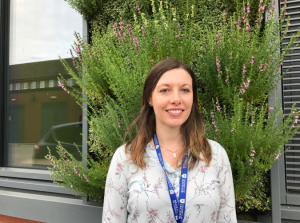GSK/British Lung Foundation Chair in Respiratory Research Professor Louise Wain from the University of Leicester has just had her latest research identifying genetic differences that put some people at higher risk than others of developing COPD published in Nature Genetics. We caught up with her to find out more about her work and how it could impact patient care.

Professor Louise Wain
Can you describe the aim of your research in 10 words?
Using genetics to understand lung disease and improve patient care.
What have you discovered so far?
We have previously shown that the genetic determinants of lung function in the general population are also informative about risk of developing COPD.
In our most recent study, we analysed the DNA and lung function of over 400,000 people from UK Biobank, a very large UK population cohort, and a consortium of smaller cohorts called the SpiroMeta consortium.
We identified 139 new regions of the genome as being important in determining lung function and confirmed 140 previously reported regions. Combining these 279 signals together into a ‘genetic risk score‘, we were able to show that individuals in the highest genetic risk score decile group were at an almost five fold increased risk of developing COPD compared to those in the lowest risk score decile.
If we combine this genetic risk with the relative risk due to smoking, amongst smokers this means that as many as 8 in 10 of those in the highest risk score decile will develop COPD by the age of 70, compared to around 2 in 10 of those in the lowest decile. This is really striking.
What aspect of the research excites you the most?
We know that smoking is the biggest risk factor for COPD but our data show that genetics are also very important. Interestingly, we were able to show that amongst never smokers, around 2 in 10 individuals in the highest genetic risk score decile group will develop COPD; a similar risk to that of some smokers. This is an important step in understanding why COPD also affects non-smokers; around 20% of individuals with COPD have never smoked.
Our findings also signpost us to new genes and pathways that haven’t been implicated in COPD before. This is exciting because it opens up new avenues for research to help us better understand the disease and ultimately identify new treatments.